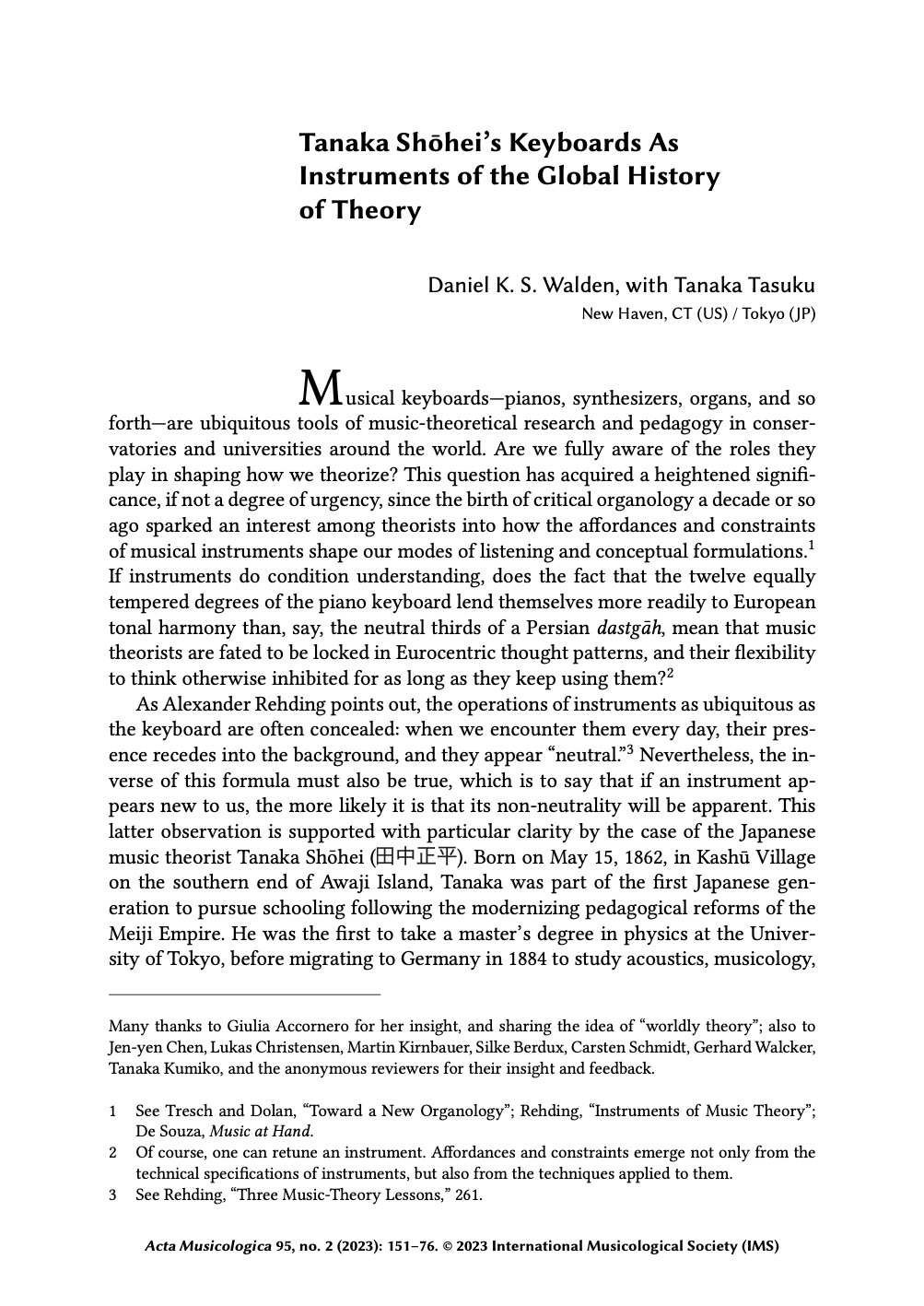Abstract
The Japanese music theorist Tanaka Shōhei captivated turn-of-the-century German audiences with three musical keyboards—the enharmonium, the syntonia, and the Demonstration Harmonium—that could perform tonal music in just intonation, a tuning system in which every interval is tuned to a whole number ratio. Such instruments, he proposed, would “return music to Nature’s eternal laws” by averting musicians from using equal temperament, which “artificially” exploited irrational numbers while dividing the octave into twelve equal steps. This article analyzes Tanaka’s theories and instruments alongside their reception history in Europe, based on archival research conducted by the author with Tanaka Tasuku, the theorist’s grandson. The analysis is contextualized within a broader discussion of the historical development of just intonation theory in Germany and Japan, and Tanaka’s efforts to use his instruments to cultivate transnational dialogue between the two countries. The article advances two claims: first, that only through close study of the technical specifications of Tanaka’s instruments can we grasp the co-productive relation between his theories, the sensations he sought to elicit, and material constraints; and second, that musical instruments can double as “instruments of the global history of theory,” by revealing how musical theories and practices have shaped global encounters.
